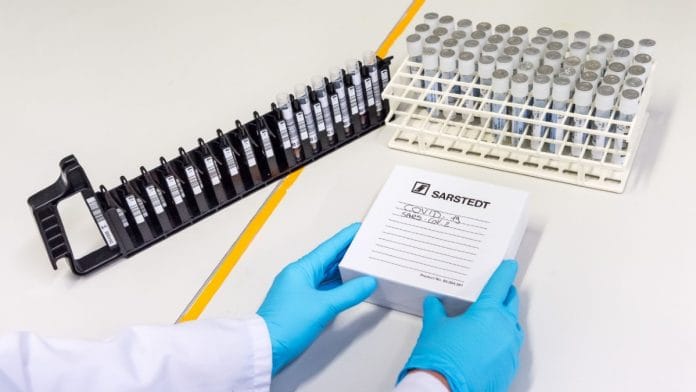New Delhi: An experimental vaccine against Covid-19 from China, which was also the first candidate in the world to proceed to human trials, has received approval from the Chinese government for use by the country’s military for a period of one year.
Developed jointly by the Chinese vaccine company CanSino Biologics and the Beijing Institute of Biotechnology in the Academy of Military Medical Sciences, the vaccine has reportedly shown promising results in the Phase 2 clinical trials, although the results of the second phase are yet to be published.
The CanSino vaccine had been found to be safe and effective in generating an immune response against SARS-CoV-2 in humans in the phase 1 trials last month.
The clinical trial of the vaccine in 108 healthy adults in China showed promising results after 28 days, according to the research published in prominent science journal The Lancet in May. Subsequently, the vaccine had moved to Phase 2 of the clinical trials.
According to a Reuters report, the company said the vaccine is currently limited to military use only and it cannot be expanded to a broader vaccination range without the approval of the Logistics Support Department of the Central Military Commission.
Also read: Covaxin — India’s first Covid-19 vaccine by Bharat Biotech gets DCGI nod for human trials
Ad5 vaccine showed promise in Phase 1
The vaccine, known as Ad5-nCoV, is one of the eight vaccine candidates being developed by Chinese companies.
It uses a weakened common cold virus called adenovirus, which infects human cells easily but does not cause disease. The adenovirus is used as a delivery system — it carries the genetic material which helps create the SARS-CoV-2 spike protein to the cells.
The spike protein helps the novel coronavirus enter and infect the human cells. These cells then produce the coronavirus spike protein, triggering the immune system to create antibodies that will fight off the virus.
In Phase 1 of the clinical trial, the vaccine had been able to generate an antibody response after 28 days of vaccination.
The volunteers had received a single injection of the Ad5 vaccine with three different doses — high, middle, and low.
The researchers then regularly tested blood samples from participants to assess if the vaccine activated the two parts of the body’s immune system: The ‘humoral response’ and the T-cell response.
The ‘humoral response’ produces neutralising antibodies that can fight infection and offer immunity from the virus. The other part of the body’s immune response depends on a group of T-cells, a type of white blood cells, to fight the virus.
An ideal vaccine would generate both antibody and T cell responses to defend against SARS-CoV-2.
All doses of the vaccination triggered some level of the immune response within two weeks.
After 28 days of vaccination, most participants had a four-fold increase in binding antibodies. These antibodies can bind to the coronavirus but do not necessarily attack it. Furthermore, half of the participants in the low- and middle-dosage groups and three-quarters of those in the high-dosage group showed neutralising antibodies against SARS-CoV-2.
The vaccine also triggered a T-cell response in a majority of the volunteers.
One of the limitations of the vaccines is that it does not work well in people who have already developed a high immunity to the adenovirus.
The trial also had a small sample size, a relatively short duration of study, and no control group, which would have allowed scientists to compare the volunteers to those who did not receive the vaccine.
Phase 2 trials were initiated on a larger group of volunteers to further investigate the effectiveness of the vaccine.
Also read: Second-generation Covid vaccines are built for impact over speed







The vaccine was developed in the same lab where the Chinese virus was designed. They are just releasing it to the public now to show how good they are in researching against time.
I think print is a chinese news media